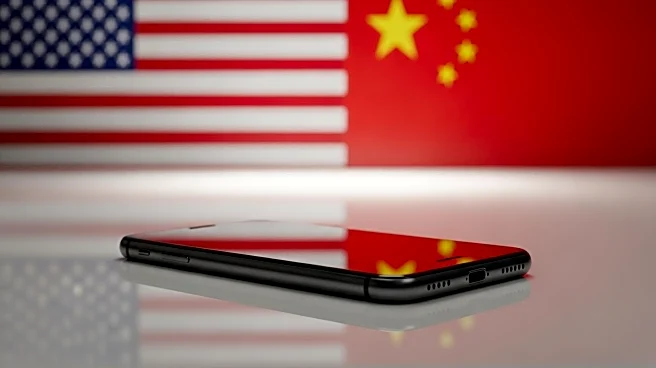What is the story about?
What's Happening?
President Trump and Chinese leader Xi Jinping held a call to discuss the ongoing negotiations regarding the TikTok app, which faces a potential ban in the U.S. unless its Chinese parent company, ByteDance, sells its U.S. assets. The call, described as productive by President Trump, also covered other significant issues such as trade, fentanyl, and the conflict between Russia and Ukraine. Both leaders agreed to meet at the upcoming Asia-Pacific Economic Cooperation summit in South Korea and discussed future visits to each other's countries. Despite the progress, no final agreement on TikTok was announced, and the White House confirmed that a formal deal is still pending.
Why It's Important?
The TikTok negotiations are a critical component of the broader U.S.-China relations, which have been strained by trade tensions and national security concerns. The outcome of these talks could significantly impact the tech industry, particularly in terms of data privacy and international business operations. A successful deal could prevent a ban on TikTok, which has a substantial user base in the U.S., and potentially ease some trade tensions between the two largest global economies. However, the unresolved status of the deal highlights ongoing geopolitical challenges and the complexities of balancing national security with economic interests.
What's Next?
The next steps involve continued negotiations to finalize the TikTok deal, with a deadline extension until December 16. Both countries are expected to engage in further discussions to address trade tariffs and export controls, particularly concerning strategically important products. The upcoming APEC summit will provide a platform for further dialogue, and any agreement reached will likely require approval from both the U.S. Congress and ByteDance's board. The situation remains fluid, with potential implications for U.S.-China relations and the global tech landscape.
Beyond the Headlines
The TikTok negotiations underscore the broader issue of data privacy and the influence of Chinese technology companies in the U.S. market. The deal's outcome could set a precedent for how similar cases are handled in the future, affecting international business regulations and the tech industry's approach to data security. Additionally, the talks reflect the ongoing power dynamics between the U.S. and China, with both countries seeking to assert their interests while navigating complex economic and political landscapes.
















